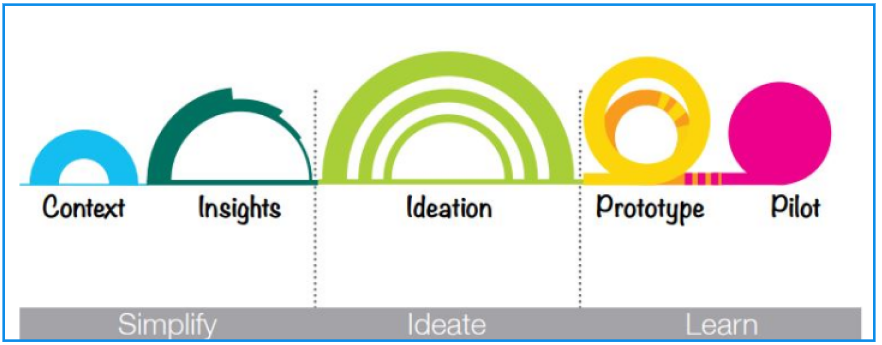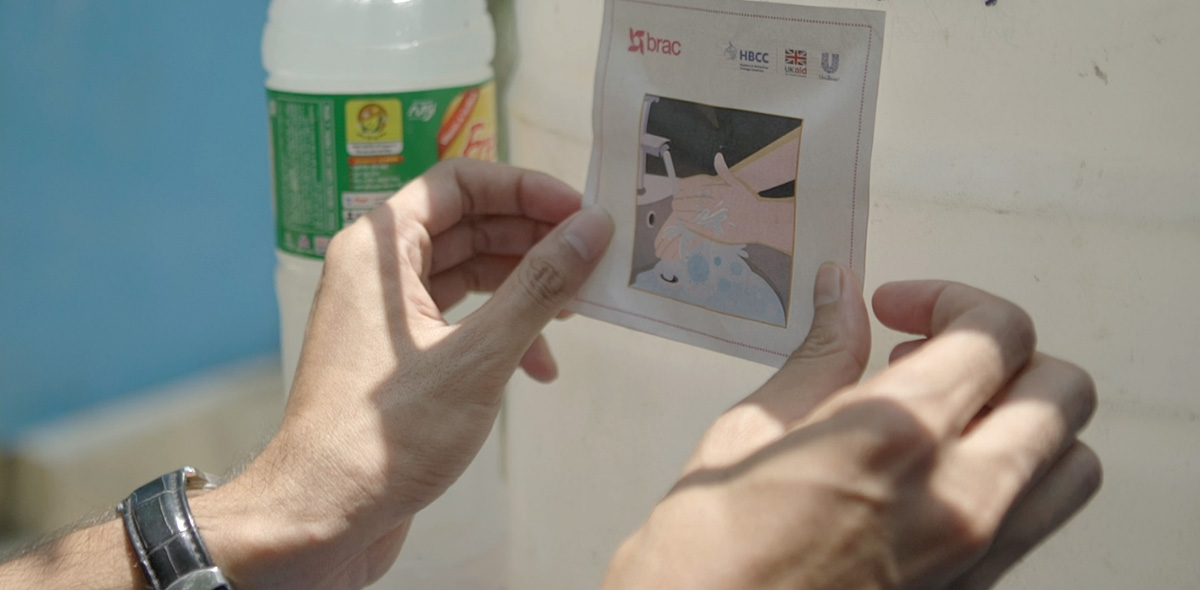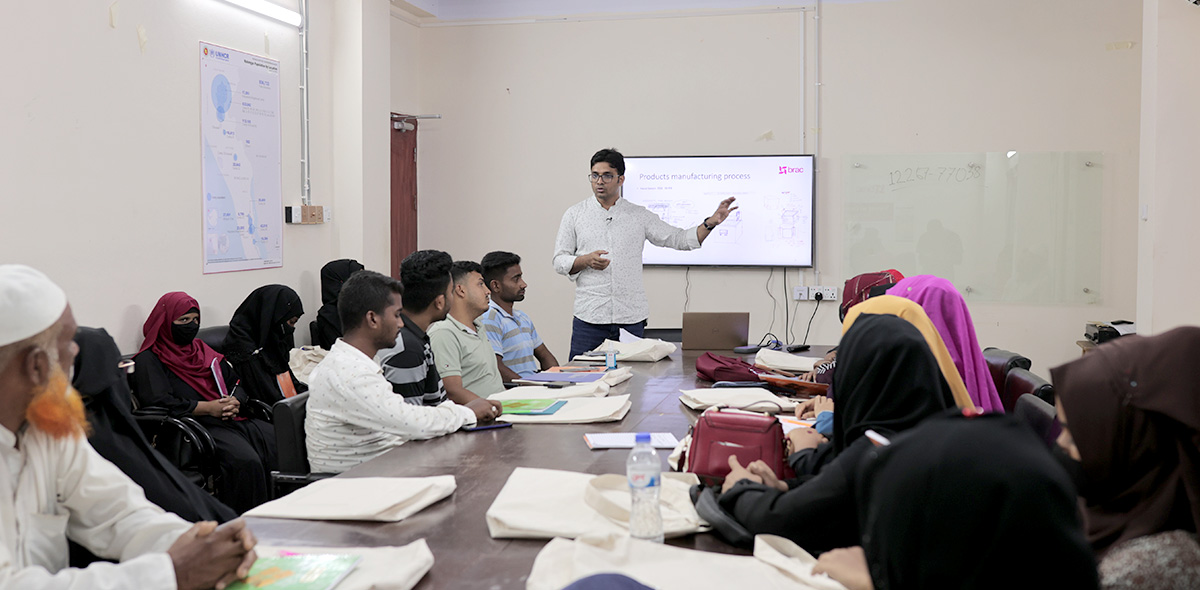Design

A human-centred approach to design is our guiding principle. We design keeping users at the heart of our work, and we design in collaboration with our stakeholders. We divide our work process into three phases: simplify, ideate and learn. You can remember it by the mnemonic S-I-L

Simplify: We seek to understand our users and what drives them to frame the problem we will be working to solve.
Ideate: We make sense of what we have found and identify opportunities for testing.
Learn: We bring our ideas to life, and test to evaluate what can be viable.
Here’s our secret for you!
Learn more: BRACoron: The BRAC way of designing with users

Behaviour insights have long informed our work for our clients. We have launched behavioural trials in the past to know about behaviour patterns, perceptions and barriers. This has helped us to hone our programme design capacity and influencing policies at the same time.
As we pride ourselves on being relevant to the people we serve, we have invested in user experience and service design. We go into the field, test with our users and quickly iterate to smoothen their journey. Our service design has helped us identify key interaction points of the services provided to our clients and evaluate their feasibility and convenience rapidly.

Hygiene and Behaviour Change Coalition 2
As a response to hygiene challenges inside Rohingya camps, BRAC has undertaken the Hygiene and Behaviour Change Coalition-2 (HBCC-2) project funded by Unilever, with the support of BRAC WASH and HCMP WASH, and partnered with the Behavioural Insights Team (BIT) team to design and implement interventions aiming to take an adaptive approach to support preparedness for future health-related crisis by strengthening local capacity across camps in Cox’s Bazar.
In coordination with BIT and HCMP WASH, six behavioural nudges were designed to improve hand-washing behaviour, coupled with a pilot research project to observe the impact of the nudges. Using social norms to encourage people to wash their hands or by providing clear, easy-to-understand information about the importance of adhering to recommended hygiene behaviour, the project aimed to nudge communities towards shifting and maintaining sustainable practices for healthier hand hygiene behaviour.
The objectives of this project included improving the sustainability of handwashing stations and sanitation facilities from HBCC1 and the existing WASH infrastructure, by working with local government partners. In addition, the project aimed to build the capacity of WASH management within the communities, test the impact of rapidly-delivered interventions, and build insights into what works for encouraging healthier hygiene practices across people living in marginalised communities. In line with these, the pilot project undertook a multitude of activities including behavioural nudge implementation, mapping of WASH vendors and training of WASH entrepreneurs; all with the goal of improving hand washing habits among 61,124 residents of the camps.
 The trial saw the implementation of six behavioural nudges, developed with the Behavioral Insights Team (BIT) and incoordination with HCMP WASH.
The trial saw the implementation of six behavioural nudges, developed with the Behavioral Insights Team (BIT) and incoordination with HCMP WASH.
The nudges include:
1. The development and repair of 300 handwashing stations to ensure functionality through the instalment of a water tank, tap, lock, funnel, and top ring frame on each station.
2. Distribution of Khutba leaflets based on the Khutba Guide by WASH, containing translated sermons to religious leaders, who incorporated messages on the significance of cleanliness in Islam into their preachings across muslim majority camps.
3. The repainting of 300 handwashing stations to enhance the appearance of the stations.
4. 10 focused group discussions with Imams, Majhis, Operators of Womens’ Entrepreneurship Centers, Female volunteers and Teachers at the Learning Centers to gather valuable insights and tailor messages and interventions to align with the cultural norms and values of the camps.
5. The addition of pictorial visual cues (stickers) showcasing the recommended steps of handwashing to the handwashing stations to encourage frequent and proper handwashing
6. The addition of a bottle of liquid soap/soapy water to the stations to act as a visual reminder and encourage individuals to wash their hands more frequently, as soapy water can improve the overall experience of handwashing, making it more pleasant and comfortable for individuals, thus adding to building a habit of proper handwashing.

View the nudge impact report
 Additionally, BRAC mapped 250 local WASH vendors and entrepreneurs in Cox's Bazar, to promote a sustainable, innovative supply chain for WASH products. Training sessions were conducted for 22 female entrepreneurs and 29 local WASH vendors in manufacturing and quality control.
Additionally, BRAC mapped 250 local WASH vendors and entrepreneurs in Cox's Bazar, to promote a sustainable, innovative supply chain for WASH products. Training sessions were conducted for 22 female entrepreneurs and 29 local WASH vendors in manufacturing and quality control.
Read on to find out what we learnt about the state of handwashing stations in the camps